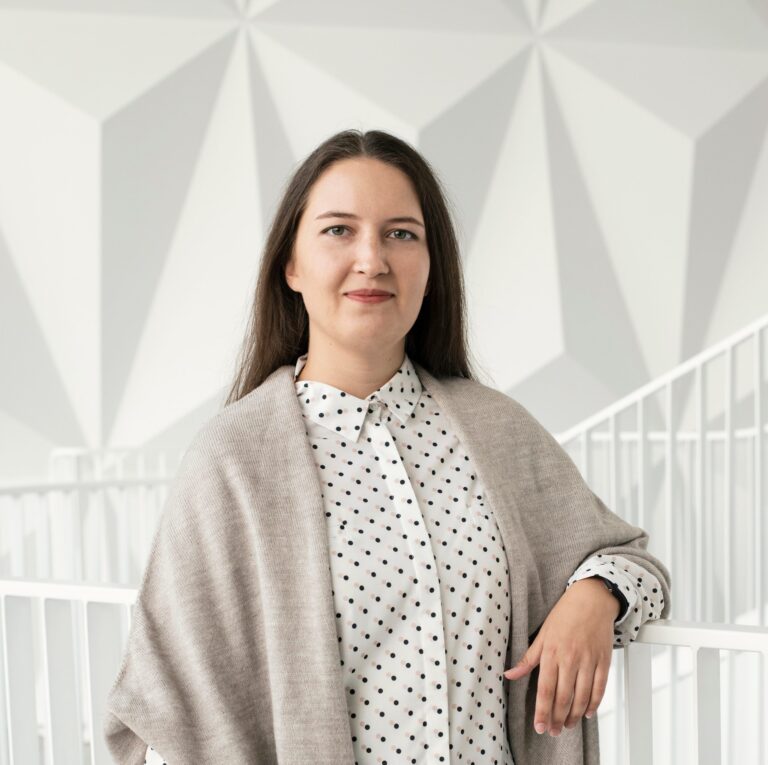Kurkime modernią Lietuvos ateitį kartu
RegistruotisOffice of the Government of the Republic of Lithuania
Data-driven governance of the Green Deal in Lithuania
Problem
Already until 2025 it is necessary to ensure that Lithuania’s first international commitments on climate and environmental issues are implemented. For example, in 2025 the share of water bodies in good ecological condition will have to be 90%, and by 2025 the condition of 10% of habitats of European Community importance must improve. We also have a considerable number of obligations for the year 2030 – the area of protected territories compared to the area of the country will have to make up 30% and we will have to reduce the amount of small solid particles (KD2,5) in the air by 36%, and in 2050 at least 50% of consumers using energy produced from renewable energy sources for their own needs will have to be present.
All these climate and environmental commitments could be broken down into the European Green Deal, with the main objective of 2050 become the first climate-neutral continent, direction:
- Greenhouse Gases (GHG) – aiming for net zero greenhouse gas emissions across Europe;
- Renewable Energy Sources (RES) – aims to develop a renewable energy sector, gradually but quickly move away from coal and decouple the gas sector from fossil fuels. Safe energy supply and availability, increasing the efficiency of energy consumption, reducing energy poverty, and the advanced, integrated infrastructure required to realize these goals are named among the priority directions;
- Circular economy – aims to move from an unsustainable linear to an economic model based on the principles of circularity, to decarbonize energy-intensive industries (steel, cement, chemicals, etc.), to pay a lot of attention to resource-intensive industries with a high potential for circularity (textiles, construction, electronics, plastic and other);
- Construction and renovation – aims to stimulate the wave of renovation of public and private buildings, increase the energy efficiency of buildings, develop smart renovation financing, using energy and resources efficiently;
- Sustainable and smart mobility – target by 2050 to reduce the pollution of the transport sector by up to 90%. The list of priority areas includes exclusive attention to users and provision of more accessible, healthier and cleaner alternatives to their current mobility habits, development of a digitized and intelligent transport system, promotion of the use of different means of transport, termination of fossil fuel subsidies;
- Environmentally friendly agriculture – aims to create a more sustainable food system by increasing the number of organic farms, improving the animal welfare situation, reducing the number of pesticides and fertilizers used, switching to more environmentally and climate friendly farming practices;
- Biodiversity – aims to expand the network of protected and strictly protected areas, improve the condition of protected species and habitats, restore damaged ecosystems;
- Zero pollution – the aim is to carry out better monitoring of air, water and soil pollution, to reduce the damage caused by pollution to society and the environment.
Currently, the coordination of some issues in the field of climate change is carried out at the Government level through the format of the National Energy and Climate Sector Action Plan’s (NEKS) working group. In this format, which includes experts from most ministries, actions, positions, joint, inter-institutional projects are prepared and coordinated. The agenda of the NEKS working group already includes issues from the areas of GHG, renewable energy, construction and renovation, and sustainable and smart mobility in the Green Deal, but does not include issues in the areas of circular economy, zero pollution, biodiversity, and organic farms. Since the NEKS working group is already a rather well functioning working group format and interested parties participate in it, the NEKS working group can be the basis for creating a common coordination format of horizontal questions or namely implementation of the European Green deal – the Green Deal Platform, which would help ministries find solutions to problems in all areas of the Green Deal.
Currently, the data required for monitoring the obligations in the fields of climate and environmental protection of Lithuania have not been identified, collected and displayed in one place, and the coordination of only part of the issues in these fields is carried out in the format of the NEKS working group.
Goal
The main purpose of this project is to identify, collect and display the available data necessary for monitoring the commitments in the fields of climate and environmental protection of Lithuania and to expand the range of questions of the NEKS working group to include all issues in the Green Deal.
Project progress
2023/03/24
Analysed current situation, identified initial project problem and goal (information is confidential)
2023/05/05
Identified data needed for monitoring Lithuanian climate and environmental protection goals and the sources of that data
2023/05/25
Analyzed and compared the areas covering the NEKS work group and the Green Deal, created the concept of Green Deal Platform
2023/06/30
During the meeting with LRV Chancellor, the concept of the proposed process - the Green Deal platform - was approved


